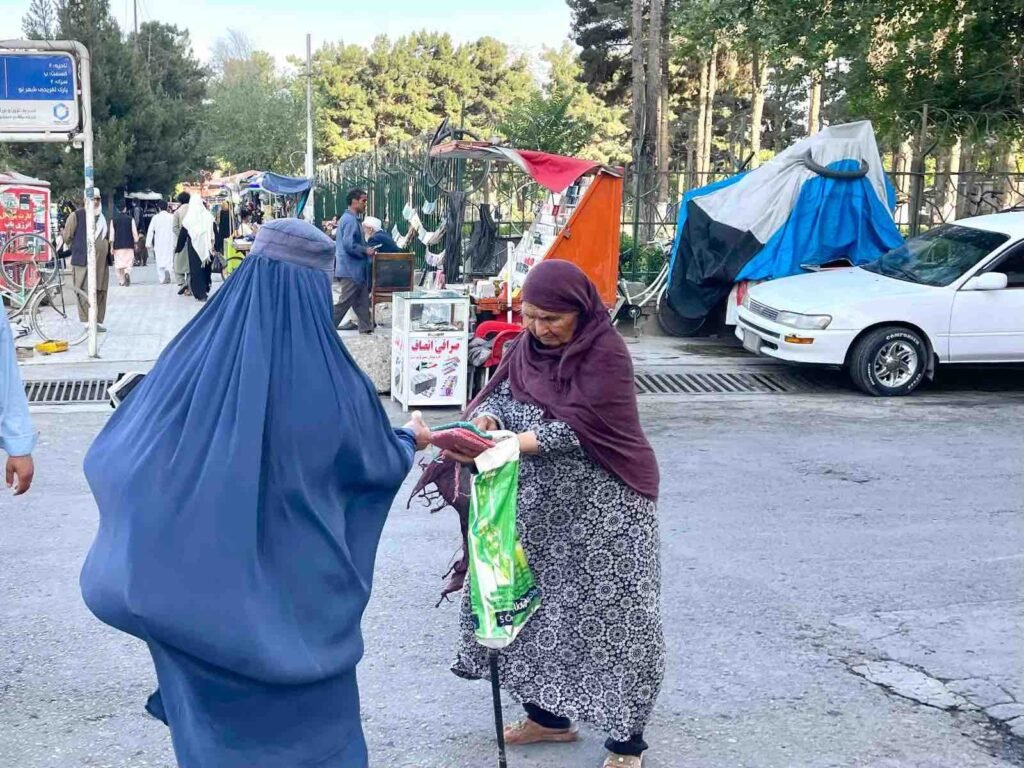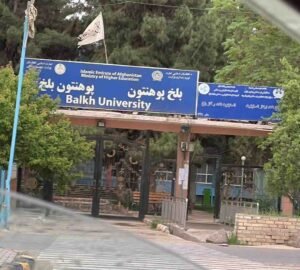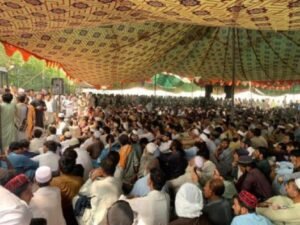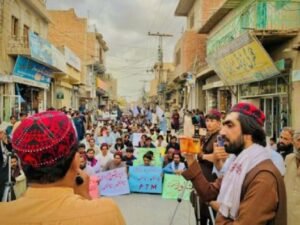Arresting Women for ‘Bad Hijab: Another Alarming Crackdown on Afghan Women’s Rights

2023, a woman in central Kabul, engaged in her work, interacts with another woman wearing a Chaderi (known as Burqah). 📸 Photo by @AADIL for ADN.
By Nazila Jamshidi
The month of January witnessed a disturbing surge in the arrest of Afghan women, particularly in Kabul, under the pretext of “bad hijab.” This alarming development is yet another sign of the escalating oppression faced by women, who are already grappling with prohibitions on education, employment, and fair access to the judicial system.
While the Taliban’s Vice and Virtue Ministry has not explicitly defined what constitutes a “bad hijab,” their spokesperson has confirmed the occurrence of the arrests.
In May 2022, the Taliban rulers issued a decree mandating that all Afghan women wear head-to-toe clothing in public. This decree also imposed restrictions on when women could leave their homes and threatened punishment for male relatives if women did not adhere to the decree. To enforce these measures, female police officers were sent to arrest women who failed to comply—a stark confirmation of the worsening situation for women.
Undoubtedly, detaining women for perceived violations of hijab norms is just one in a series of repressive acts witnessed over the past two and a half years. These incidents bear not only significant negative implications for the lives of Afghan women but also the escalating detentions and the imposition of increasingly restrictive decrees convey deeply concerning messages about the erosion of the foundations of human rights and women’s security in the country.
The recent incidents underscore a concerning trend where Afghan women’s rights to safety and liberty are rapidly eroding within the country. Security, at its core, is the freedom from threats, dangers, vulnerabilities, force, and attacks.
It is a fundamental responsibility of the ruling power to safeguard the safety of its citizens. Liberty, another critical aspect, is an inherent component of human rights, originating from the defense of individual liberty and safety against oppression and the unjust exercise of power by regimes and states.
Despite the Taliban’s assertions that the security and safety of Afghan citizens are protected under their rule, recent events tell a different story. Women have been arrested from shopping centers, classrooms, and street markets, accused of violating dress codes, particularly those of hijab.
These places, where individuals should feel safe and secure, have become the very locations of arrests. Eyewitness accounts, along with photographic and video evidence, reveal that women were wearing large shawls and head scarves when detained. This not only contradicts the Taliban’s claims of ensuring safety for women but also serves as a sharp indication of the alarming lack of safety for women under their rule.
International Response and Advocacy Initiatives
The recent events have understandably drawn condemnation from women’s rights activists and advocacy groups, with the Together Stronger Coalition, a coalition of Afghan women advocates inside and outside Afghanistan, releasing a statement strongly condemning the Taliban for the arrests.
In their statement, the coalition expressed the belief that the Taliban’s actions aim to “completely erase women from society,” confirming a state of gender apartheid in Afghanistan. These arrests are viewed as a continuation of unjust edicts, aligning with the Taliban’s broader plan to establish a fully patriarchal society.
Defenders of Equality, Freedom, and Advancement for Women (DEFAW), a newly established organization committed to gender equality, initiated a social media campaign with the hashtag #WeHearYou. The campaign involves sharing recordings of Afghan women’s voices and providing firsthand accounts of witnessing these arrests. Numerous other groups and movements have also raised their voices through various means.
While statements of condemnation and calls to reverse the decree have been made by the international community, tangible actions have been limited. However, the UN Security Council’s plan to appoint a Special Envoy for Afghanistan, equipped with robust expertise in human rights and gender as designated by the United Nations Secretary-General, holds promise for effectiveness. The appointment of a special envoy is anticipated to sustain UN engagement in Afghanistan and promote the independent report recommendations, particularly concerning gender and human rights.
Although these reports may not immediately alter the Taliban’s policies on women, they can influence the policies of states and the international community to react coherently to these policies. The hope is that such actions will contribute to meaningful changes in the approach to the human rights of women in Afghanistan.
Nazila Jamshidi – a gender equality and human rights specialist involved in Afghanistan’s development and democracy processes for the past decade – has worked for the UN, USAID, the International Federation of Red Cross.
Note: The contents of the article are of sole responsibility of the author. Afghan Diaspora Network will not be responsible for any inaccurate or incorrect statement in the articles.








